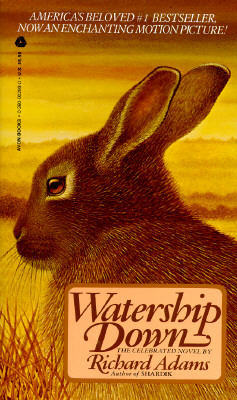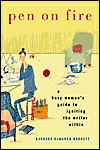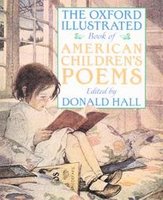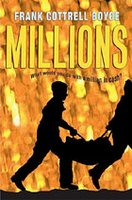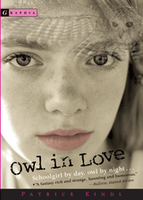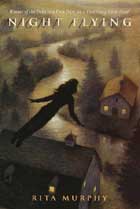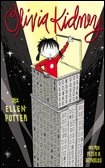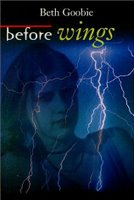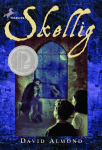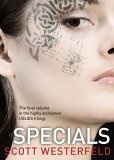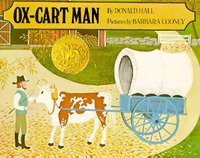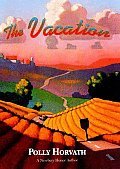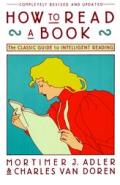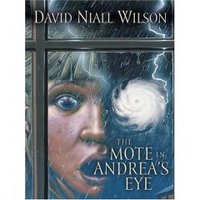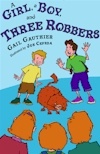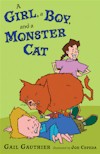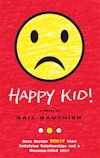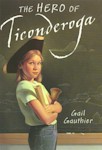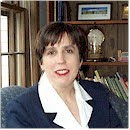Buzz, Balls, and Hype recently carried a post entitled
Authorgeddon in which
M.J.Rose defined "authorgeddon" as the "...hypothetical date when the number of books published in a given year will exceed the number of people who have read a book that same year."
Poets & Writers recently ran an article called
The Law of Diminishing Readership that discussed the same subject. We have large numbers of people who want to write and publish, who actually do write and publish.
I can remember a time when the number of books being published annually was usually considered to be around 40,000. For the last few years I've been hearing estimates of anywhere from 140,000 to 175,000.
That's a lot of authors who have attained the success of becoming published. That's a lot of authors with books to sell. A lot of authors trying to get press for their books.
Last month I had a new book come out, and for the first time I became seriously involved in
trying to promote it. It was a frustrating and not terribly productive experience, not because my book is bad (can't be that) and not because the world is full of awful people who don't recognize a good book when they see one. No, it was a frustrating and not terribly productive experience because there are just too many of us out there scrambling for the same limited amount of press.
My publisher takes care of marketing to a great extent. I was merely working on local media. I sent out press packages with arcs to seven newspapers in two states, and three magazines. I also contacted two radio stations. I contacted seven bookstores in two states. (That's not a lot, I know. I wasn't exactly killing myself over that one.)
I received coverage in one very local newspaper. Really. It only goes to households in two towns, one of them mine. The most obscure magazine of the three reviewed
Happy Kid! favorably. I did one bookstore appearance and have one to go.
I didn't even contact the local paper that did an article on me. I contacted another paper in its chain, a paper that goes out to many more towns. Its publisher bumped me down to the local publication because, I was told, the publisher said that if he printed something on every writer who contacts him, he'd be publishing a book review.
One of the reasons I got so involved with promoting this book is that I thought I had a hook.
Happy Kid! includes a martial arts story line and I'm a martial arts student...of a certain age, let's say. Hey, as God is my witness, I thought that was human interest. I knew the next book--and I am on to the next book--doesn't have a hook, at least not one that I can think of, so I thought I should shoot the works on this one.
I had some very good things happen relating to the promotion for
Happy Kid!. They were just things that weren't part of the marketing plan I created a couple of years ago, and, to some extent, didn't have a lot to do with me.
For instance, Barnes & Noble placed a decent pre-publication order because its people liked the cover. I didn't have anything to do with the cover. I happened to have an essay published in
VerbSap, which also then published an
interview with me.
Edge of the Forest also interviewed me. Both
Book Moot and
Big A little a did reviews.
Almost all my best promotion came over the Internet. That's where I'm focusing in the future. Instead of spending time writing press releases that have to be tweaked for various hardcopy media, I'm spending my time writing and submitting to journals. Any arcs I receive from my publisher will be distributed to interested litbloggers.
Think about it--for the most part I was focusing on media in my state. Even if I'd had a good result, I'd only have reached people in my geographic area. But litblogs are read by people all across the country. And while the space for book reviews in traditional media is supposed to be decreasing, new litblogs are springing up all the time.
So, that's how book promotion for
Happy Kid! went. I certainly haven't abandoned the book, but it's time to be writing, not marketing.
You can all breath a sigh of relief. I'm through whining!
